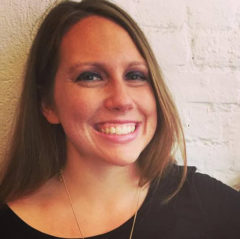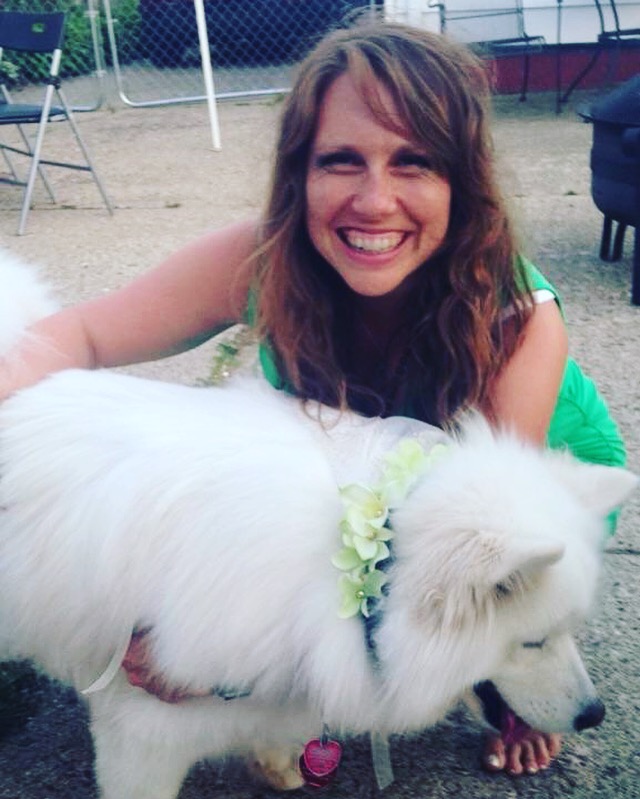This essay was published in the 2020 issue of the Bear River Review. “Psalm 139” also placed second in the 2020 Oakland University literary nonfiction contest, alumni category.
My son is with me, my son is me.
Rain falls on the awning that frames the wet green backyard, and a triangle-shaped pillow molds my walmart.com outdoor sofa into a form that steadies my lower back, which the seven-month-old baby, floating in liquid darkness in my womb, is pressing down on. I didn’t know about wedge pillows until three nights ago, when the lower-backache struck for the seventh time and I searched Amazon for “wedge pregnancy pillow.”
You how my back was beam-wise laid,
and raftring of my ribs dost know:
knows ev’ry point
of bone and joint,
how to this whole these parts did grow
Last night I cried, confessing to my husband I wanted our baby out. “It’s so weird, it’s so weird,” I wept, and he held me, and he within me kicked.
“Children’s cells live on in mothers,” a Science News headline asserts, when the Internet glows in the cloak of night to guide me in discovering my son’s motives when I, in a fit of panic, feel him knocking around in there and realize I am, quite literally, not alone: Is he with me or against me? Or is he me?
Arthur Rimbaud writes “‘I’ is another.”
Am I him?
Is he me?
Each inmost peace of me is thine:
while yet I in my mother dwelt,
all that me clad
from thee I had.
“Way back when you and your mom shared a body, your cells mingled. Her cells slipped into your body and your cells circled back into her,” Science News continues.
“Baby’s Cells Can Manipulate Mom’s Body for Decades”—Smithsonian Magazine.
The Atlantic’s “Your Baby’s Leftover DNA Is Making You Stronger” boasts the most literary Extra! Extra! Your baby is altering your very cellular makeup from the inside! of them all: “Writer Sarah Gerkensmeyer, mother of two sons, says she likes to think that they never completely left her, that microchimerism from her younger son Charlie, born in 2011, helped give rise to her short story collection.”
how to this whole these partes did grow,
in brave embroidery fair arayed,
though wrought in shop both dark and low.
Grounding my feet into the plastic Persian rug that weaves red and blue (recycled) strips to render purple at a few feet’s distance, I envision my baby’s presence outside of me, under the awning with me, playing on the rug.
The text message my mom sent the other day—“I felt awful when you slipped in the tub trying to get out and hit your chin—off to the hospital for stitches with Aunt Theresa”—interrupts the vision of my child dancing in my head, which contorts into a violent flash; he is tumbling backward and his head is crashing onto the cement frame of the sliding glass door.
I walk through the sliding glass door.
The bruises covering three bananas on the counter appear even darker than they were this morning.
On Pinterest, “The BAKERMAMA” tells me to combine three medium-ripe bananas, two cups old-fashioned rolled oats, two large eggs, one-quarter cup pure maple syrup, one teaspoon baking soda, into a nine-by-five-inch loaf pan, which I grease. But first, a pin sent to me: “In case you still don’t understand how badly women have had it, when anesthetic was first invented doctors weren’t allowed to give it to women who were giving birth because the church said that the pain of childbirth was God punishing women for not being men. My jaw just fucking dropped,” with a pretzel in the shape of a womb as its background.
We read “texts with critical empathy, but we also need to allow them to read us. Good editing takes time; we must linger with a text as well as critically interrogate it,” Susan Felch writes in Editing Early Modern Women, which I read for class this morning.
I am thinking about using the 35 minutes my banana bread needs to bake for allowing ideas to gestate for the essay I’m writing.
Instead, impatient with too much gestating (too much reading, not enough writing) I bang out fragments, my dog at my feet framed by the cedar desk licking the specks of bread mix that crumbled onto her paws when I let her lick the bowl.
You in my frame has strongly delt;
needs in my praise your works must shine
so inly them my thoughts have felt.
I read Renaissance Englishwomen, and their texts are a mirror; they reflect myself.
I remember Mikhail Bakhtin. “An encounter of two cultures does not result in merging or mixing. Each retains its own unity and open totality, but they are mutually enriched.”
Six months later, my husband, in his red old bathing suit, in the new bathtub we bought while nesting for our son, cradles him in the warm water as I wash the soap out of his hair.
The italicized text is Lady Mary Sidney Herbert’s 1599 translation of Psalm 139.



